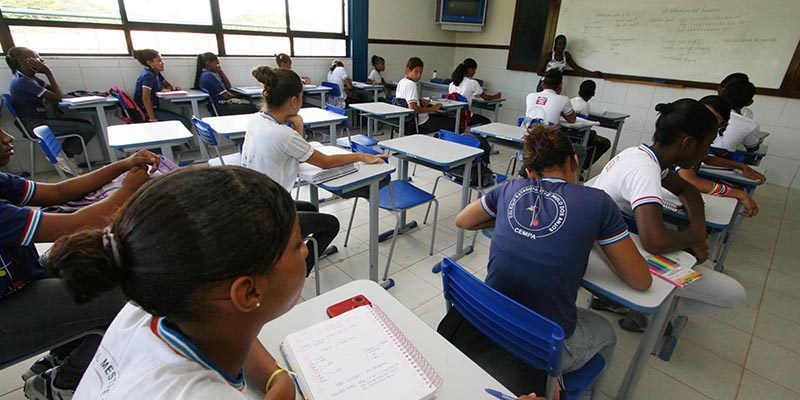The State Government of Bahia published last January 27 Ordinance No. 190/2024 which determines the “mass approval” in the state school system. The measure, edited while education professionals were on “collective holidays”, provides for “continuing progression” with “successive advances without interruption in the year/series”. According to the Bahia Department of Education (SEC), the project would have a “partial progression regime” for failed students who pass to the next grade, teaching online classes, “specific notebooks” and “study plans” to regulate them "Pendencies" from the previous year. According to teachers, the ordinance is an attempt to mask the rates of education and the crisis in the state school system.
In 2023, the Higher Education Census revealed that Bahia was the state with the lowest proportion of high school -based students who enrolled for the National High School Exam. Meanwhile, in 2022, the school census pointed to the trend of increasing disapproval rates after returning to face -to -face classes: the rate of high school abandonment in the public network was 6.5%, higher since 2019, while the rate Approval fell to 85.1%.
The Basic Education Development Index (IDEB), which combines approval rates with the Portuguese and Mathematics Proof of the Basic Education Assessment System (SAEB), also revealed that in 2022 high school in the state network of Bahia has Fourth worst grade in the general index and the penultimate placement in Portuguese and Mathematics Learning. In addition, throughout Brazil, education goes bad. Currently, the dropout rate in the country reaches half a million young people. In the three years of high school range from 8.8%, 8.3%and 4.6%, depending on the year.
In this serious framework of public education, measures such as the newly approved by the Bahian state government are nothing more than palliative. With “democratic” appearances by trying to reduce failure rates in schools, the most practical effect of the measure is to make the precarious training of public schools, without even touching the most basic problems of education in the country.
A recent study by IPEC points out that 48% of students who do not attend school is due to the need to work to help with accounts at home and inability to reconcile studies with work. Another effect known on young people is the lack of perspective in the face of the future, driven by the advancement of the crisis in the country. While not solving any of these central problems, the government seeks to manipulate data with palliative measures.
Earlier this year, the federal government was in the same direction by launching the “Pé de Meia” program. The measure seeks to offer a value of R $ 200 per month to the student, as well as a savings at the end of high school, if students maintain the minimum approval rate. A bonus can be granted to those who take the Enem test, regardless of whether or not approved (ie, it doesn't matter the entry of these students to the university, and the priority is the increase in college entrance exams). Calculations have also shown that the $ 200 are unable to improve the lives of these students , which will continue to work to help at home and thus not maintain the minimum frequency rate in school.
